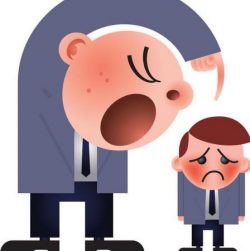April 19, 2021
Pressure and weak leadership form the recipe for workplace bullying
 Employees experience more bullying on days with higher work pressure and passive avoidant leadership, finds new research from BI Norwegian Business School and the University of Bergen and published in The European Management Journal. Professor Olav Kjellevold Olsen and colleagues studied how work pressure is related to daily experiences of workplace bullying related acts, as well as the relationship with transformational or laissez-faire leadership. Transformational leadership involves paying more attention to employees’ needs for achievement and providing social support. Laissez-faire leadership involves a more passive and destructive approach leaving followers on their own in situations in need of leadership. (more…)
Employees experience more bullying on days with higher work pressure and passive avoidant leadership, finds new research from BI Norwegian Business School and the University of Bergen and published in The European Management Journal. Professor Olav Kjellevold Olsen and colleagues studied how work pressure is related to daily experiences of workplace bullying related acts, as well as the relationship with transformational or laissez-faire leadership. Transformational leadership involves paying more attention to employees’ needs for achievement and providing social support. Laissez-faire leadership involves a more passive and destructive approach leaving followers on their own in situations in need of leadership. (more…)







 It is now a truism that society expects more of business than merely maximising shareholder value.
It is now a truism that society expects more of business than merely maximising shareholder value. 
 As the world emerges from the grip of the pandemic, the
As the world emerges from the grip of the pandemic, the 
 Many organisations make bold claims about their zero carbon ambitions. Even if they don’t, most have sustainability statements. Yet the environmental impact of office furniture and sophisticated approaches to sustainable office design seem to be way down the ‘pecking order’. During the last year, we have read considerable commentary about the office – starting with its death but moving onto predictions of the ‘new dawn’ with more versatile and healthier workspaces.
Many organisations make bold claims about their zero carbon ambitions. Even if they don’t, most have sustainability statements. Yet the environmental impact of office furniture and sophisticated approaches to sustainable office design seem to be way down the ‘pecking order’. During the last year, we have read considerable commentary about the office – starting with its death but moving onto predictions of the ‘new dawn’ with more versatile and healthier workspaces. 


 An innovative little box that resembles a Rubik’s cube is making its way into corporate workspaces to assist facilities managers and HR teams gauge energy consumption and monitor the building’s efficiency, as well as track air quality, temperature and overall comfort of their physical surroundings. It’s all about better buildings. If individuals feel good in their workplace, they’re more likely to care about (and take care of) the buildings where they spend a large part of their days. And to ensure that the sample is truly representative, each individual can have a lightweight and portable
An innovative little box that resembles a Rubik’s cube is making its way into corporate workspaces to assist facilities managers and HR teams gauge energy consumption and monitor the building’s efficiency, as well as track air quality, temperature and overall comfort of their physical surroundings. It’s all about better buildings. If individuals feel good in their workplace, they’re more likely to care about (and take care of) the buildings where they spend a large part of their days. And to ensure that the sample is truly representative, each individual can have a lightweight and portable 
 Progress for women in work could be back at 2017 levels by the end of this year as a result of the COVID-19 pandemic, according to analysis conducted for
Progress for women in work could be back at 2017 levels by the end of this year as a result of the COVID-19 pandemic, according to analysis conducted for 
 The feelings of isolation being experienced by employees is the biggest concern IT and cybersecurity teams have around home working, say almost one third (31 percent) of respondents to the latest Twitter poll run by
The feelings of isolation being experienced by employees is the biggest concern IT and cybersecurity teams have around home working, say almost one third (31 percent) of respondents to the latest Twitter poll run by 
 Two and a half million Brits are expected to be unemployed this year after the fall out of the pandemic. A concern for many has been how disabled people will fare with the aftermath. The unemployment rate for people with disabilities is more than twice those who are able bodied.
Two and a half million Brits are expected to be unemployed this year after the fall out of the pandemic. A concern for many has been how disabled people will fare with the aftermath. The unemployment rate for people with disabilities is more than twice those who are able bodied. 
 How good your line manager is makes the difference between an employee coping or struggling in lockdown. But too often line managers’ heroic efforts are not noticed by their employers, claims new report, titled
How good your line manager is makes the difference between an employee coping or struggling in lockdown. But too often line managers’ heroic efforts are not noticed by their employers, claims new report, titled 
 Senior executives aged 55+ have fared better than ‘millennial’ leaders (aged under 35) during the global pandemic.
Senior executives aged 55+ have fared better than ‘millennial’ leaders (aged under 35) during the global pandemic. 







April 26, 2021
What are the limits of an employer’s duty of care to employees?
by Helen Jamieson • Comment, Wellbeing